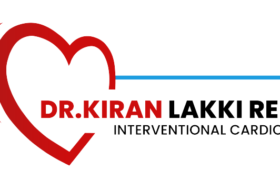Maintaining a healthy lifestyle is crucial for overall well-being and the prevention of various diseases. Here are some key components of a healthy lifestyle:
- Balanced diet: Aim to consume a variety of nutritious foods, including fruits, vegetables, whole grains, lean proteins, and healthy fats. Limit processed foods, sugary drinks, and foods high in saturated and trans fats. Practice portion control and mindful eating.
- Regular physical activity: Engage in regular exercise or physical activity for at least 150 minutes per week. Choose activities that you enjoy and that challenge your cardiovascular system, strength, and flexibility. Examples include brisk walking, jogging, swimming, cycling, weightlifting, and yoga.
- Adequate sleep: Establish a consistent sleep schedule and aim for 7 to 9 hours of quality sleep each night. Good sleep is essential for physical and mental health, energy levels, and overall functioning.
- Stress management: Find healthy ways to manage and cope with stress, such as practicing relaxation techniques (deep breathing, meditation, yoga), engaging in hobbies, spending time with loved ones, or seeking professional support when needed.
- Avoid tobacco and limit alcohol consumption: If you smoke, seek resources and support to quit. Limit alcohol consumption or avoid it altogether.
- Maintain a healthy weight: Strive to achieve and maintain a healthy body weight through a combination of balanced eating and regular physical activity. Consult with a healthcare professional for personalized guidance.
- Regular health check-ups: Schedule regular check-ups with your healthcare provider to monitor your health, screen for potential conditions, and address any concerns or questions you may have.
- Hydration: Stay adequately hydrated by drinking plenty of water throughout the day. Limit the intake of sugary drinks and opt for water as the primary beverage.
- Social connections: Cultivate positive relationships and social connections with friends, family, and community. Strong social support can contribute to better mental and physical health.
- Mental well-being: Prioritize your mental health by engaging in activities that bring you joy, practicing self-care, seeking support when needed, and being mindful of your emotions and mental state.
Remember, adopting a healthy lifestyle is a long-term commitment and involves making sustainable changes. It’s important to listen to your body, make gradual improvements, and seek professional guidance when necessary. Small steps toward a healthier lifestyle can have significant and positive impacts on your overall well-being.


